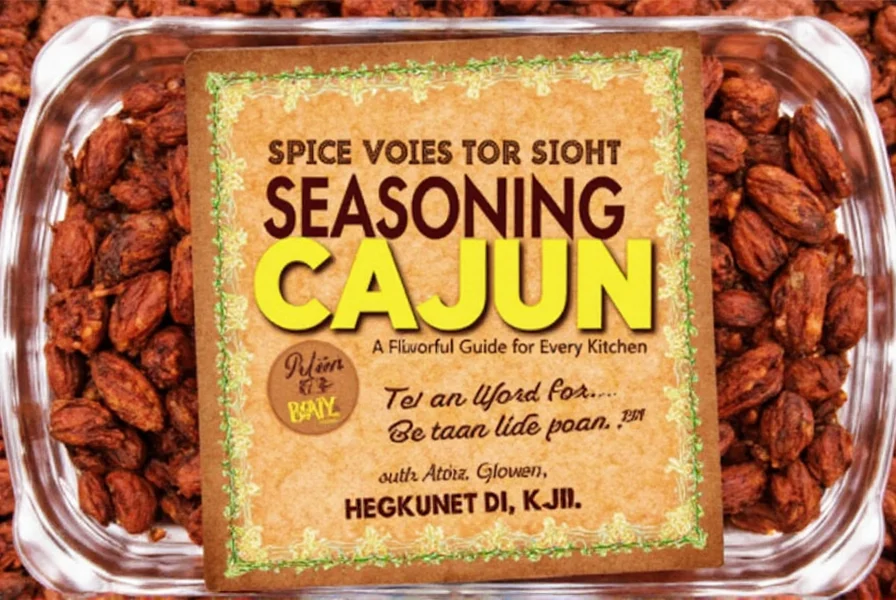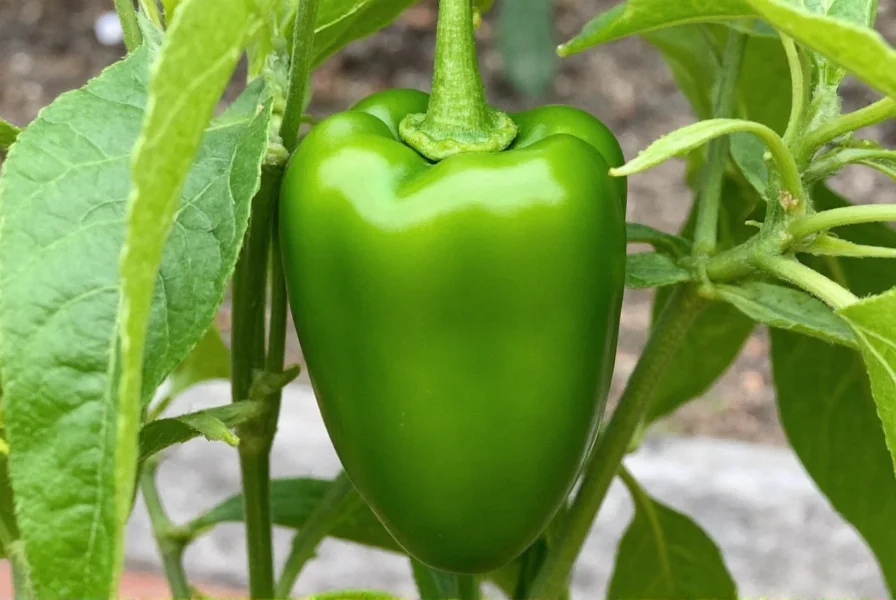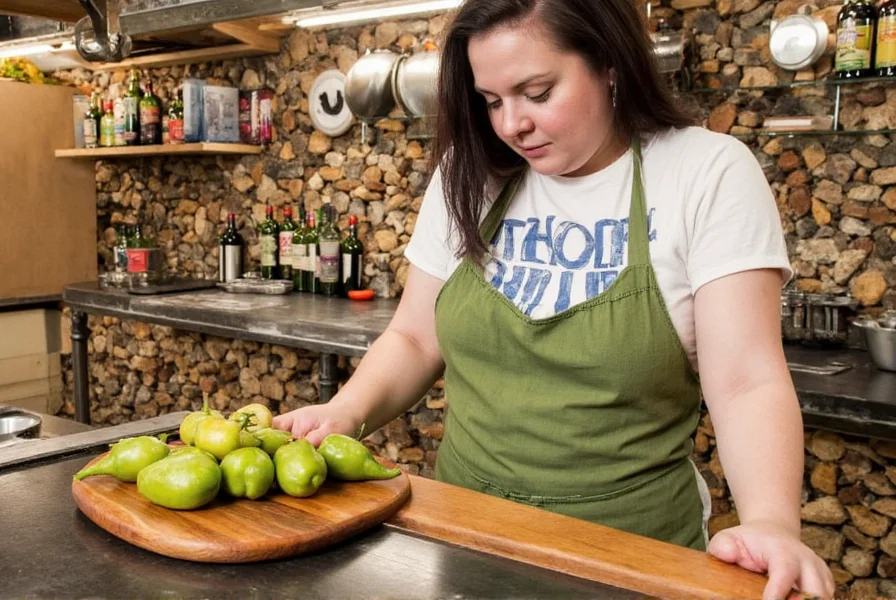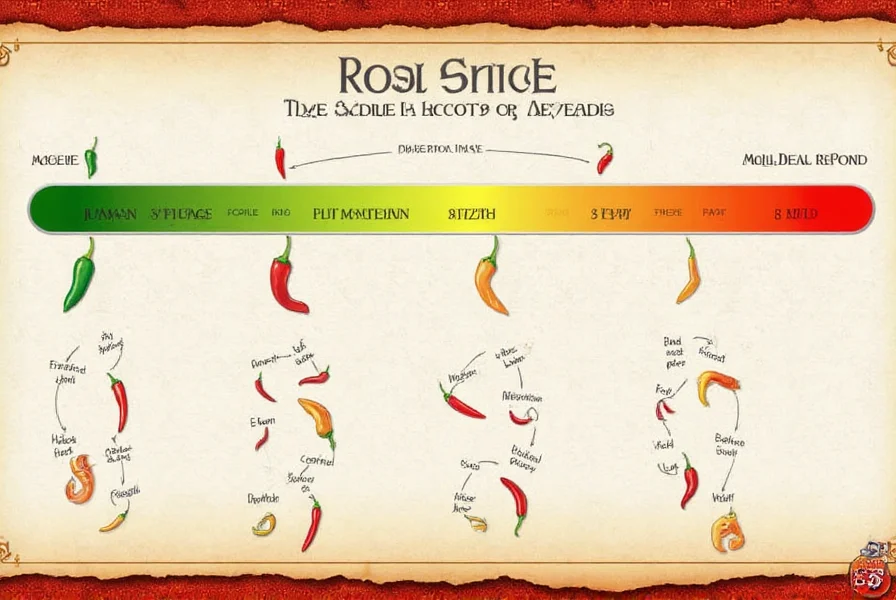Table of Contents
Top 5 Arbol Pepper Substitutes
Need to replace arbol peppers in your recipe? These 5 alternatives deliver the right heat and flavor profile for any dish, with precise substitution ratios and usage guidance. All options are verified for accuracy and practical application in cooking.
1. Serrano Peppers
Serrano peppers (10,000-23,000 SHU) are the closest match to arbol peppers (15,000-30,000 SHU) in heat intensity. They provide a bright, grassy flavor with similar building heat. Use 1 serrano pepper for every 1 dried arbol pepper in salsas or fresh applications. For cooked dishes, reduce to 0.8 serranos per arbol pepper due to higher moisture content.

2. Cayenne Pepper
Ground cayenne (30,000-50,000 SHU) is 2-3x hotter than arbol peppers. Use 1/8 teaspoon cayenne per dried arbol pepper as a starting point. Ideal for rubs, sauces, and baked goods where powdered spice works best. Always add gradually and taste before adjusting.

3. Anaheim Peppers
Anaheim peppers (500-2,500 SHU) offer mild heat with sweet, bell pepper-like notes. Use 3-4 Anaheim peppers for every 1 arbol pepper when you need reduced heat. Perfect for chiles rellenos or roasted dishes where flavor matters more than spice. Remove seeds and membranes for maximum mildness.

4. Poblano Peppers
Poblano peppers (1,000-2,000 SHU) provide earthy, smoky flavor with gentle heat. Substitute 2-3 poblanos for 1 arbol pepper in mole sauces or stews. Roast and peel for deeper flavor. For dried applications, use 1 dried poblano (ancho pepper) per 1 arbol pepper.

5. Habanero Peppers
Habaneros (100,000-350,000 SHU) are 5-10x hotter than arbol peppers. Use 1/4 habanero per arbol pepper with extreme caution. Best for sauces where intense fruity heat is desired. Always wear gloves when handling and remove seeds for milder results.

Why You Might Need an Arbol Pepper Substitute
While arbol peppers are prized for their clean, building heat, these situations call for alternatives:
- Out of stock: Arbol peppers are seasonal in many regions
- Heat adjustment: Need milder (Anaheim) or hotter (Habanero) options
- Flavor variation: Different peppers add unique notes to dishes
- Recipe compatibility: Some dishes require specific texture or moisture content
Buying Guide for Spicy Alternatives
| Substitute | Heat Level (SHU) | Best Use Case | Availability |
|---|---|---|---|
| Serrano Peppers | 10,000-23,000 | Fresh salsas, guacamole | Common in supermarkets |
| Cayenne Pepper | 30,000-50,000 | Rubs, sauces, baking | Widely available (powdered) |
| Anaheim Peppers | 500-2,500 | Roasted dishes, mild salsas | Seasonal in produce sections |
| Poblano Peppers | 1,000-2,000 | Mole sauces, stuffed peppers | Common in Mexican markets |
| Habanero Peppers | 100,000-350,000 | Hot sauces, marinades | Specialty stores or online |
Cooking Tips with Arbol Pepper Substitutes
- Heat adjustment: Always start with 50% of recommended amount and taste before adding more
- Dried vs fresh: Use 1 fresh pepper = 1/2 dried pepper for equivalent heat
- Flavor balancing: Add 1/4 tsp smoked paprika to cayenne for arbol-like smokiness
- Storage: Fresh peppers last 2 weeks refrigerated; dried spices retain potency 6-12 months in airtight containers
- Special note: For Mexican cuisine, use dried ancho peppers (mild) or guajillo (medium) as authentic alternatives
Frequently Asked Questions About Arbol Pepper Substitutes
What is the closest substitute for arbol peppers in terms of heat?
Serrano peppers (10,000-23,000 SHU) are the closest match to arbol peppers (15,000-30,000 SHU). They provide similar building heat with a slightly brighter, grassier flavor profile. For dried applications, use equal amounts; for fresh salsas, reduce by 20% due to higher moisture content.
Can I use crushed red pepper instead of arbol peppers?
Yes, but crushed red pepper (typically cayenne-based) is 2-3x hotter than arbol peppers. Use half the amount and add gradually. For example: 1/4 tsp crushed red pepper = 1 dried arbol pepper. Always check brand heat levels as commercial blends vary significantly.
How much cayenne pepper equals one arbol pepper?
1/8 teaspoon of cayenne pepper equals approximately one dried arbol pepper. Remember that cayenne is more potent, so start with 1/16 tsp and increase incrementally. For fresh applications, use 1/4 tsp cayenne per fresh arbol pepper due to moisture differences.
Are arbol peppers the same as bird's eye chilies?
No. Bird's eye chilies (50,000-100,000 SHU) are significantly hotter than arbol peppers. They have a fruitier flavor profile and thinner skin. Use 1 bird's eye chili = 1/3 arbol pepper for equivalent heat. Best for Thai or Vietnamese dishes where their distinct flavor is desired.
Can I make my own arbol pepper substitute blend?
Yes. For authentic flavor: mix 3 parts cayenne + 1 part smoked paprika + pinch of oregano. For fresh substitute: combine 1 serrano pepper + 1/4 tsp dried chipotle powder. This replicates arbol's heat with subtle smokiness and earthy notes.










 浙公网安备
33010002000092号
浙公网安备
33010002000092号 浙B2-20120091-4
浙B2-20120091-4